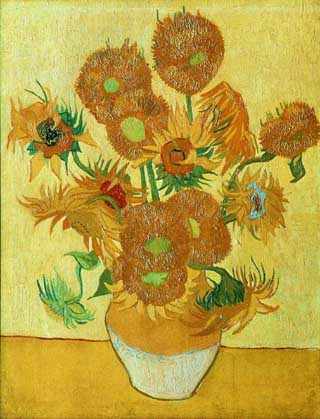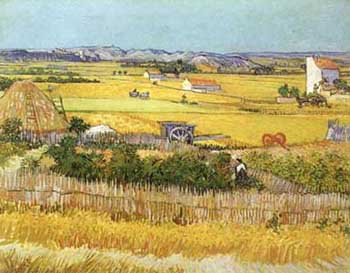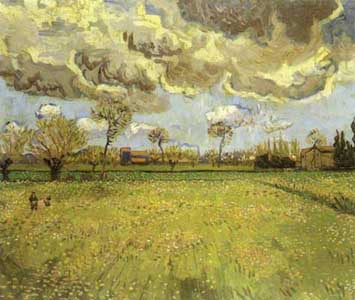|
Introduction to Hypertext Literature in
English (Spring, 2005)
This course is designed to
introduce students to the study of the relationships between literary forms and
digital media. Students will be encouraged to read interactively hypertext work,
to break down the boundary between the writer and the reader, and most
importantly, to conceive new methods of learning. From an overview of hypertext
literature to readings of different genres, this course will focus on the
following three respects: 1) revolutionary impact of technology and digital
media (Internet in particular) on literary creation, research, and
communication; 2) analysis, interpretation, and criticism on English hypertext
literature; and 3) creativity and originality of literature in general.
*Download the
course syllabus.
Reading Materials:
No paper book is
needed for this course. Log in the course website every week and link to the
reading articles and hyper works.
Evaluation:
|
Participation & Attendance |
Discussion Board |
Oral Report |
Homework |
Final Project |
|
15% |
10% |
25% |
25% |
25% |
Participation & Attendance:
Students are expected to
attend class punctually and to participate actively in both the class and group
discussion. When not being able to attend the class, students need to inform the
teacher in advance.
No more than 2 excused absences will be permitted. Students’ attendance,
punctuality and participation will all be recorded for evaluation.
*1
absence = -2 points
*1 lateness = -1 point
Discussion Board:
Log on our
discussion board
(http://134.208.27.95/xoops/) as often as you can.
Post whatever question you have concerning hypertext literature or respond
openly and constructively to other visitors’ opinions. This is a place where you
can make your voice heard, especially if you’re one who’s shy to speak in class.
The teacher will join your discussion whenever she can.
*Remember to indicate your name and student ID
with every of your messages.
Oral Report:
In groups of three, you will be asked to look for
background information and to give a 40-minute presentation
in English on the literary work(s) and writer(s) you have chosen by
yourselves or from the suggested reading list. The report should at least cover
the following:
1) reasons for choice
2) introduction to the writer(s)
3) key vocabulary and concepts
4) analysis and interpretation of the hypertext work
5) comparison with other works (either in English or Chinese; either
hypertextual or textual) or
other media (such as visual and
audio).
During the report, you also have
the responsibility to invite the class to participate and to answer questions
from your classmates.
*One week ahead: 1) To report to the teacher your progress
2) To let the class know your reading choice so that they can
preview
*One week afterwards:
To hand in an organized paper covering the information
of your oral report
1) E-mail to
peichenliao@mail.ndhu.edu.tw prior to 12 AM.
2)
Burn a CD and give it to the teacher in class
3)
ftp://english:common@134.208.16.24
*NO late paper will be accepted.
*Download
the rubric.
Homework:
You will have 5 homework including response and research papers, creative
writing, homepage design etc..
Final
Project:
You’re free to decide the
form and content of your final project, but most importantly, it shall at best
show fully your learning from this course. Here are some suggestions:
1) to create an English
hypertext work of your own by using links, jpg., sound, etc.
2) to create a Chinese
version for one of the works read in class
3)
to write an organized review of
the reading materials
4)
to compare hypertext literature
with traditional literature in print by giving some significant
examples
5)
to argue the advantages and
disadvantages of technology, esp. in respect of its impact on
reading
and writing
*Each
of you will have 10-15 minutes to show your project to the class
in the final two weeks before handing it in to the teacher.
*See projects done by other students:
Vanderbilt
University
Schedule:
|
Week |
Topic |
Report |
|
01 02/23 |
Syllabus |
|
|
Introduction: Krumme, “Are
you Hypertextually Predisposed?” |
|
|
02 03/02 |
Electronic and Print—
1)
Jennifer Ley, “This
is not a book” (Vocabulary)
2) Mark
Bernsteain, “Chasing Our Tails”
(Vocabulary) |
|
Reference:
1) The Book
(from the "Non-linear
Tradition in Literature")
2)
The End of the Book
|
|
|
03 03/09 |
Definitions—
1) Ilana
Snyder, “Interrogating the Terms”
(Vocabulary)
2) George
P. Landow, “The
Definition of Hypertext and It’s History as a Concept” |
|
|
Homework 1 |
|
04 03/16 |
Seven Lessons for Gardening—
Mark Bernstein, “Hypertext
Gardens: Delightful Vistas”
"Hypertext Gardens: Delightful Vistas" (pdf.)
Vocabulary
(new) |
|
Reference:
1) Dialogue with
Mark Bernstein |
|
|
05 03/23 |
Hypertext Nonfiction—
1) Stuart
Moulthrop, “It’s not What You
Think”
(perhaps the world’s first
hypertextual letter to the editor)
2) Shelly
Jackson, “My Body & a Wunderkammer”
(Vocabulary) |
|
Reference:
1) Wunderkammer
(Scientific curiosities, artefacts and ephemera)
2)
Frankenstein: Presenting the secrets of nature
(esp. the Celluloid Monster)
3) Patchwork
Girl |
|
|
Homework 2 (see discussion board) |
|
Section (A-G1):
History with a Twist
(Vocabulary) |
Non-fiction |
|
06 03/30 |
Hypertext Nonfiction—
Edward
L. Ayers, “The Valley of the Shadow”
(Vocabulary
I) |
|
Reference:
1)
Outline of the Civil War (with links to the study of Abraham Lincoln)
2) The Music of the American
Civil War
|
|
Section (A-G2): Talan Memmott,
“Self
Portrait(s) [as Other(s)]"
Section (B-G1): Talan Memmott, “Self Portrait(s) [as Other(s)]" |
Non-fiction |
|
07 04/06 |
No class! |
|
|
08 04/13 |
Hypertext Nonfiction--
1)
Edward
L. Ayers, “The Valley of the Shadow”
2) Cold Mountain (Movie) |
|
Reference:
1) Charles Frazier, "Cold
Mountain Diary" (it described how the author found inspiration for his
Civil War-era novel)
2) Cold Mountain
reviews (including movie info, trailer, poster, photos, news,
articles, forum, etc.) |
|
|
Homework 3 (write a war letter) |
|
09 04/20
|
Mid-term Exam Week |
|
|
10 04/27 |
How to Read Hypertext Fiction—
Mark Bernstein, “Conversations
with Friends: Hypertext with Characters”
(Vocabulary) (PowerPoint
for class discussion) |
|
|
11 05/04 |
Hypertext Fiction—
Richard Pryll, “Lies”
(Vocabulary)
“Lies” in Chinese |
|
Reference:
1) Introduction to the author,
rix trix, pix &
clix
2) 李順興,超文本小說:〈謊言〉,還是真話?
3) Doug Bonnema,
"Analysis of
Lies, a Hypertext Fiction by Richard L.
Pryll Jr" |
|
Homework 4: Lies |
|
12 05/11 |
Hypertext Fiction—
Stuart
Moulthrope,
"Hegirascope 2
" (Version 2, 1997)
"Hegirascope
2 Index Table"
(Vocabulary) (PowerPoint
for class discussion) |
|
Activity:
Queue the stopped automatic lexias into groups |
Reference:
1) 李順興,《漫遊網際》:定時連結的妙用
(including links to other reviews)
2) Shuen-shing Lee, "How
do I Cool Down the Overheated Medium?"
3) How do
you create a timed link?
4) How do you take a
screenshot? |
|
Section (B-G2):
Peter
S. Johnson, “So
That You Might Hear Me” |
Fiction |
|
13 05/18 |
Hypertext Fiction—
1) Stuart
Moulthrope, “Hegirascope”
(1997)
(Vocabulary 2)
(PowerPoint for class activity) |
|
|
Section (B-G3):
Wee
Liang Meng and Lam Koi Yao, “A
Tale of Two Cities” |
Fiction |
|
14 05/25 |
Introduction to Hypertext Poetry: Old
and New (Vocabulary)
1) e.
e.
Cummings, “1(a…”
2) John Hollander, "Swan
and Shadow"
3) William
Blake, “To
see a world in a grain of sand”
4) Shakespeare Sonnet
Puzzle |
|
Reference:
1) Gericht,
New Criticism of e.e.cummings' "L(a" |
|
Internship: Learning to design your own homepage (PowerPoint) |
|
Homework 5 |
|
15 06/01 |
Hypertext Poetry—
David Jewell, “Insomnia”
(Vocabulary)
Insomnia Survey |
|
|
Section (A-G3): Panhandle
Section (B-G4): Click Poetry
|
Poetry
|
|
16 06/08 |
Edward Cossette, “Submariner”
(Vocabulary) |
|
Reference:
1) The Royal Navy
Submarine Museum
2) NOVA Online--Virtual
Tours
3)
Submarine & Cold War History |
|
Class Activity:
Writing your
own villanelle poem on "color" |
|
17 06/15 |
Final project |
|
|
18 06/22 |
Final project |
|
Non-fiction
(Suggested Reading List)
1) Nancy
Kaplan, “E-Literacies”
2) Adrian Miles, “Singin’ in the
Rain: A Hypertextual Reading”
(Cf. Kelly & Donen’s 1956 musical Singin’ in the Rain)
3) Talan Memmott, “Self
Portrait(s) [as Other(s)]"
4) List
of Hypertext Non-Fiction
Fiction
1) Stuart
Moulthrope,
Victory Garden
2) Ian
Randall Wilson, “If We Even
Did Anything”
3) Wee
Liang Meng and Lam Koi Yao, “A
Tale of Two Cities”
4) Peter
S. Johnson, “So
That You Might Hear Me”
5)
Leni Zumas, “Semio-Surf”
6) Judy
Malloy, Tom Igoe, Chris Abraham, Tim Collins, Anna Couey, Valerie Gardiner,
Joseph
Wilson, and Doug Cohen,
“My
Name is Scibe”
7) Stuart Moulthroupe,
Pax (2003)
Poetry
List of Hypertext
Poetry
-----------------------------------------------------------------------------------------------------
For more information, enter
each individual section.
|


